Sixth Edition of the European Remembrance Networking Meeting
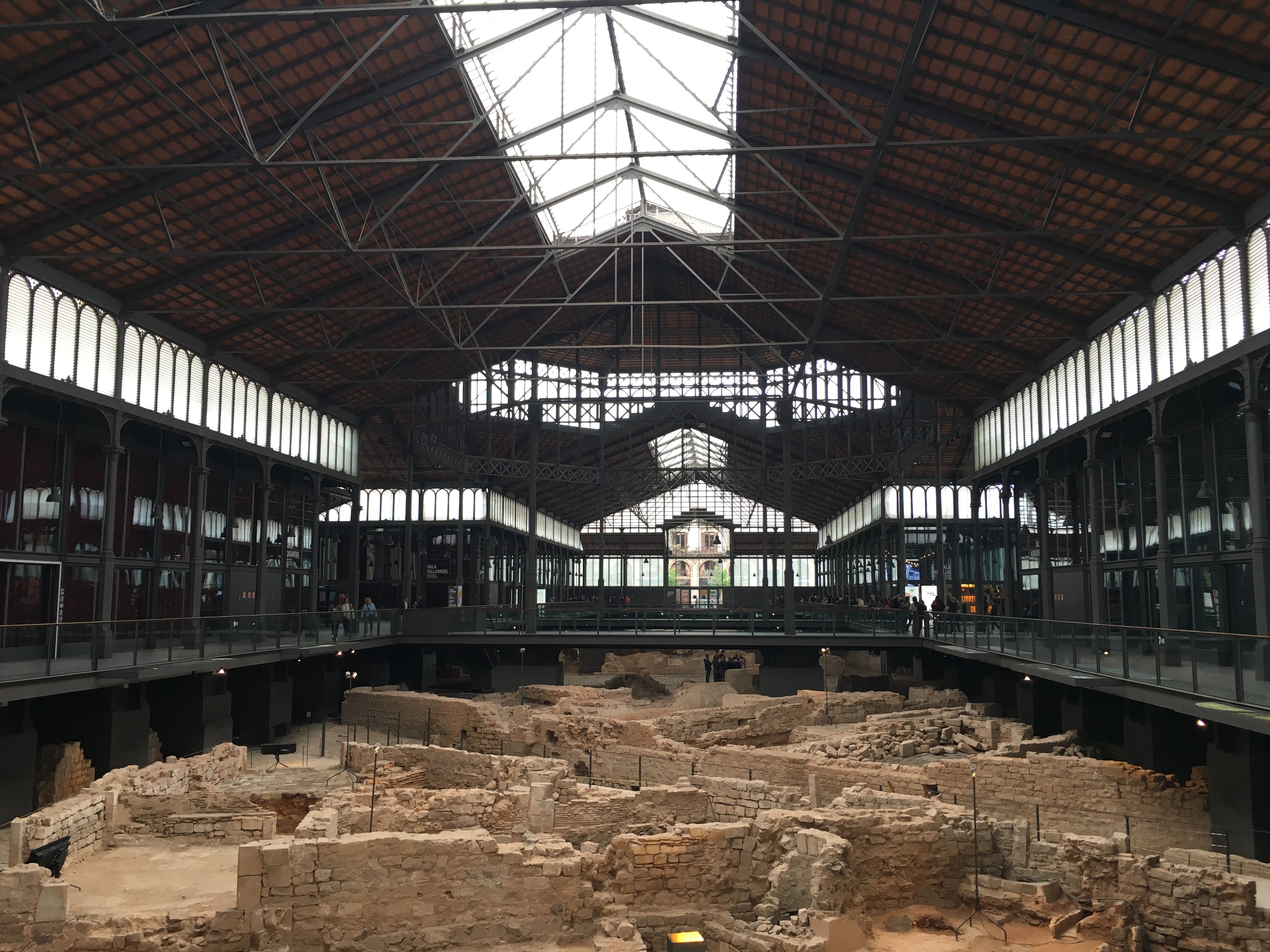
date: 01/06/2016
Opening session
The opening session was guided by the Commissioner of Memory Programmes for the City of Barcelona, Ricard Vinyes, who was accompanied by Jaume Asens, Deputy Mayor of Barcelona; Pavel Tychtl, representative of the European Commission; and Jordi Guixé Coromines, director of the European Observatory on Memories (EUROM).

From left to right: Jordi Guixe, Pavel Tychtl, Jaume Asens and Ricard Vinyes - © Teresa Estrada / European Commission
Ricard Vinyes introduced Barcelona’s historical memory to the attendees underlining the city’s experience during the Spanish Civil War (1936-1939), a conflict from which thousands of refugees emerged. “Refugees are part of our city’s experience”, he said. “Solidarity”, he added, “is a slogan that must go along with memory”.
Jaume Asens (Deputy Mayor of Barcelona) shared a brief reflection on democratic memories and Barcelona’s public policies concerning it. “Retrieving memories constitutes a priority for today’s government”. According to him, getting memory back is crucial for attaining democracy, for it is people who ultimately enable memory to take shape. “This city is a cultural product of anonymous people”, stressed Asens.
Pavel Tychtl (Europe for Citizens) reminded the audience of the overall purpose of the networking meeting, initiated in 2011 in order to better understand local contexts and to approach the complexity of European memories. Since then, the meetings have constituted an attempt to bring people together to create a European platform that can “meet across different traditions, experiences and backgrounds”. Tychtl also highlighted local level contexts as essential in understanding Europe as a whole. “We need to bring our memories together”, he stated.
Lastly, Jordi Guixé (EUROM) pleaded for European institutions to defend “memory as a right and not just as a duty or a responsibility”. Returning to the original goals of this sixth European networking meeting, Guixé hoped the event could enable new processes of transnational and transversal public memory. “There is a real social demand for getting to know more about what happened in the past, about memory”.
Opening Keynote: “Memories of Europe in the Art of Elsewhere”
Andreas Huyssen, founding director of the Center for Comparative Literature and Society of Columbia University
“European memory cannot be fortressed. It must include memories of Europe as they circulate across the world”
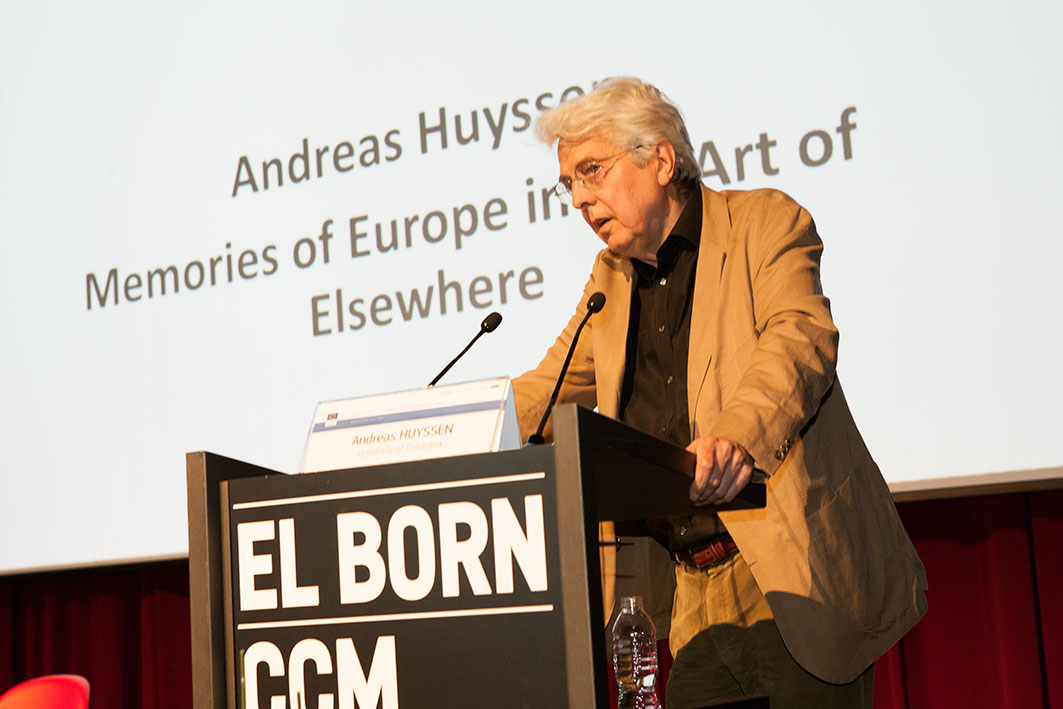
Andreas Huyssen - © Teresa Estrada / European Commission
Andreas Huyssen (Columbia University) focused his lecture on the work of three contemporary artists that allowed him to explore European memory as a transnational element, as a global and collective construction. “European memory cannot be fortressed. It must include memories of Europe as they circulate across the world”, stated Huyssen, for whom transnational messages “may retrieve pieces of history to explain facts beyond national borders”.
“Memories need embodiment, but they cannot be represented in a mimetic fashion, because then they are limited by their representation”. Aiming to show how important it is to think of memory as a global experience in which the discourse about “the other” disappears, Huyssen concluded that “Arts can open up an alternative horizon, a way to be European and planetary at the same time”. Huyssen concluded his speech talking about the "waste of time in modernity", its instability and its dislocation.
Panel Dialogue 1: Memory, Citizenship, Solidarity
“We should look at the past to learn from our successes and failures”
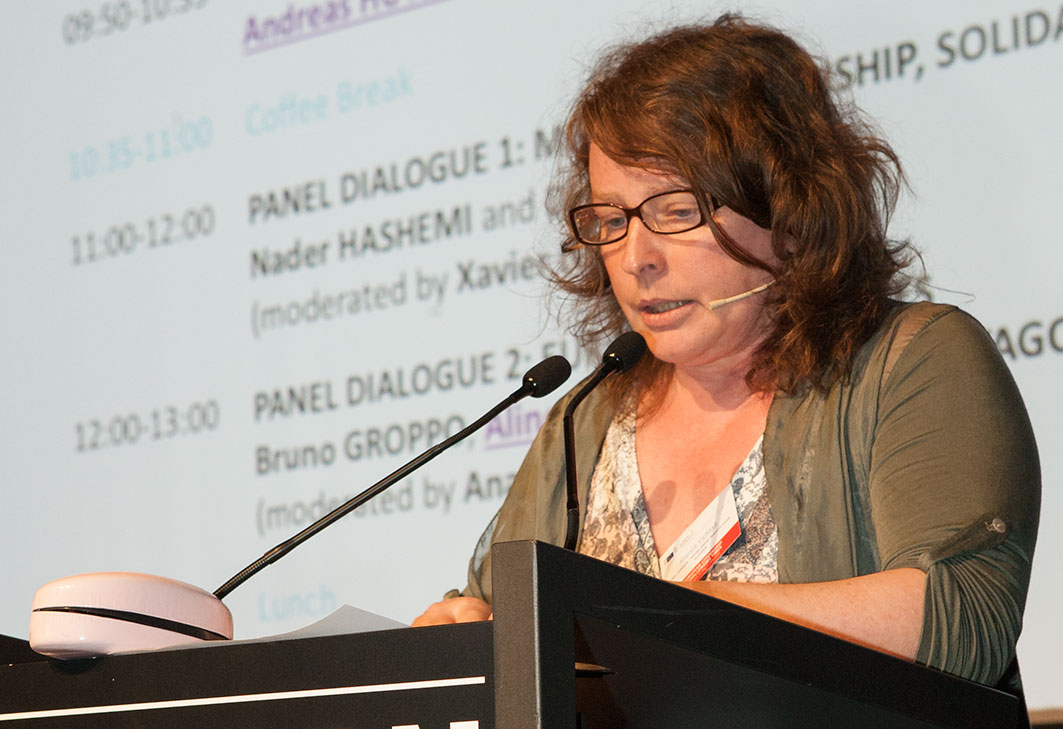
Ksenija Vidmar - © Teresa Estrada / European Commission
Moderator Ksenija Vidmar (University of Ljubjana) introduced the first panel by stressing the importance of thinking of memory as a means to further understand the past and better prepare for the future. “For the first time in modern history, we have true means and opportunities to co-create memories for the future”, she said. According to Vidmar, “we have a say in how the future will remember the failing present”.
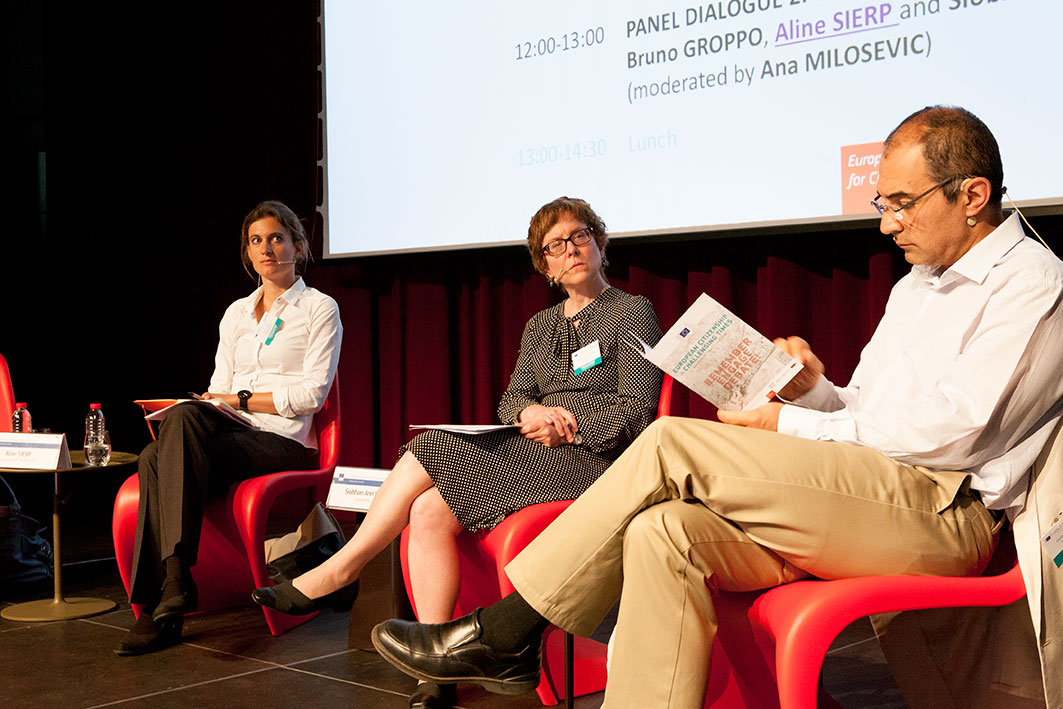
From left to right: Aline Sierp, Siobhan Kattago and Nader Hashemi - © Teresa Estrada / European Commission
Aline Sierp (Maastricht University) challenged the audience by declaring that “a European memory still does not exist”. During her speech, Sierp discussed whether European memory can exist at all. “A lot of people believe that a European memory cannot exist because it cannot refer to a common source of historical narrative. Other scholars argue that European Union requires a common memory to construct a common identity”, she noted. From Sierp’s view, the difference between a national narrative and a European dimension of memory is very much a question of form. Therefore, a collective European memory can be possible. “It can be done through dialogue and exchange by integrating different perspectives into a new framework where they can coexist together and create a new big frame”.
Nader Hashemi (University of Denver) emphasized the need for a transnationalisation of memories.
Siobhan Kattago (University of Tartu) noted that we should not forget that the history of Europe is "a history of wars, genocides and expulsions," and in this sense the current refugee crisis provides a new lens with which understand the process of construction of European memories. As an example, she highlighted the “irony” of the walls that are being built at European borders after the fall of the Berlin Wall while Eastern Europe remembers the crimes of communism as part of the collective European memory. "I wonder if memories of the refugee crises of the early twentieth century have been forgotten or if they are selectively remembered." To Kattago, memory may enable Europe to deal more effectively with the current humanitarian emergency. “The refugee crisis of the twentieth century Europe was far more complex that the current one. We should look at the past to learn from our successes and failures of the time”. According to Kattago, “episodes regarding refugees as a product of the failure of nation states and international system is still valid today”.
Panel Dialogue 2: Public Policies on Memory in Spain
“Memory is not a duty, it is a right”

From left to right : Ricard Vinyes, Montserrat Dutch and Francisco Ferrandiz - © Teresa Estrada / European Commission
Montserrat Duch (University Rovira i Virgili) moderated the second panel of the day and briefly addressed the main problems of Spanish memory in terms of “amnesia” and “forgetfulness”.
The anthropologist Francisco Ferrandiz (Spanish National Research Council) spoke of the historical “silence” and “oblivion” that has existed thus far regarding Spanish dictator Francisco Franco’s crimes. “All this silence, darkness and denial are preventing Spain, a democratic state, to release its demons”. As an example of how difficult it is for citizens to bear such a silence, Ferrandiz pointed to the exhumation of common graves, a “desperate act committed by victims’ offspring” to learn more about an unfinished past. “The voices of the victims need a legitimate space to be expressed express and turned into memory”, claimed the anthropologist.
Ricard Vinyes (Barcelona City Council) underlined the need of working for citizens' memory by allowing citizens to participate in the building processes of images that aim at transmitting the experiences of the past. “We need as much support as possible to give a meaning to this spaces and build pedagogical debates”.
Workshop 1: Social Participation and Memory: Exchange of Best Practices
“Without dialogue, nothing can change”
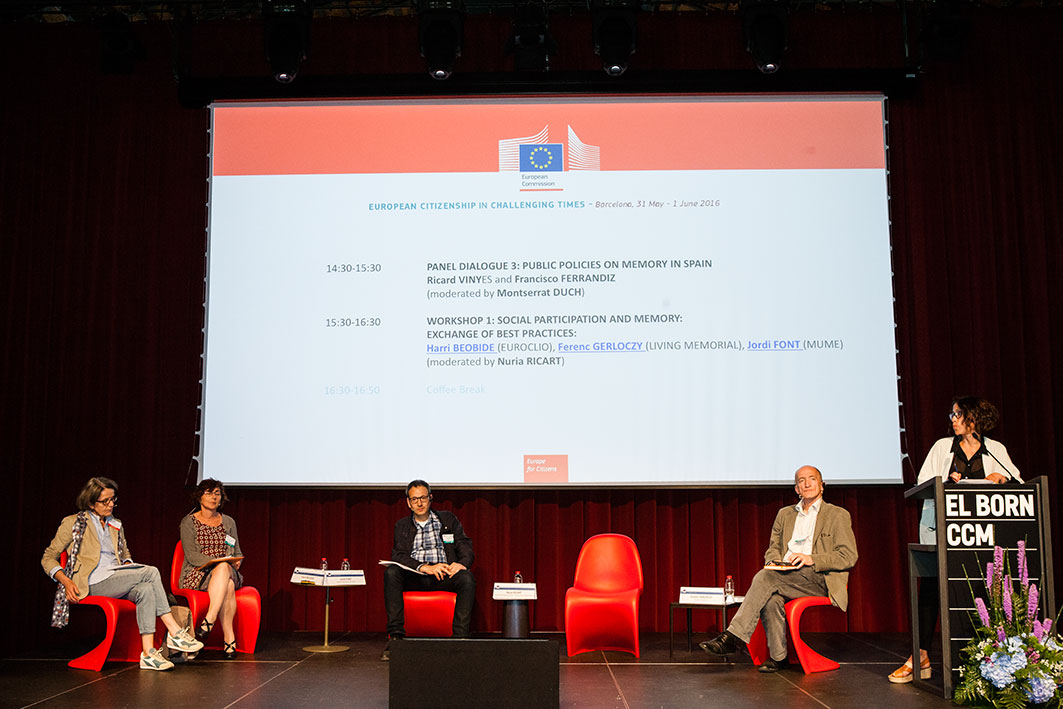
From left to right: Maria Laura Marescalchi, Harri Beobide, Jordi Font, Ferenc Gerloczy and Nuria Ricart - © Teresa Estrada / European Commission
Núria Ricart (University of Barcelona) moderated the workshop that summarized European initiatives on social participation and memory, presenting the examples of three different projects.
Maria Laura Marescalchi and Harri Beobide introduced EUROCLIO, a non-governmental organization created in 1993 that today connects with 75 organizations of history educators, associations and institutes from more than 40 countries. Its goal is to develop critical educational tools for the recent history of national countries and Europe. Marescalchi (Italy) and Beobide (Spain) explained EUROCLIO’s methodology through the recently launched project “Silencing Citizens”, which aims to improve students’ understanding of why and how censorship has been used throughout time in different European societies.
Ferenc Gerloczy presented the experience of the Living Memorial of Budapest, an “in progress” monument born as a popular protest against a memorial that allegedly commemorates the 70th anniversary of the Nazi German occupation of Hungary. The Living Memorial began as an “unofficial and popular reaction” that placed a set of chairs in front of the monument to fight against the “falsification of history”. As Gerloczy detailed, the Living Memorial denounces the fact that the monument portrays Hungary as “absolutely innocent”, when it was actually responsible for sentencing around 450,000 Jews to death during the Nazi occupation. Despite its original purpose, the Living Memorial has now become a place to debate over democracy and social integration.
Jordi Font discussed the experience of the Museu Memorial de l’Exili (Memorial Musuem of Exile - MUME). Located in the border area of La Jonquera (Spain), the museum aims to explain the “great exodus” that took place during the Spanish Civil War by leaving a “permanent print” not only on the memory of citizens but also on the territory. According to Font, the particularity of MUME is its educational service. “The Museum has been expanded beyond its physical walls creating paths and itineraries organized to create a memory-based tourism”, he explained.
Workshop 2: European Networking
“Critical modern consciousness must be based on the complexity of history and its multiple contradictory aspects”
Seven speakers took the floor for the second workshop of the event to speak about their organizations’ experiences in teaching and training about memory.
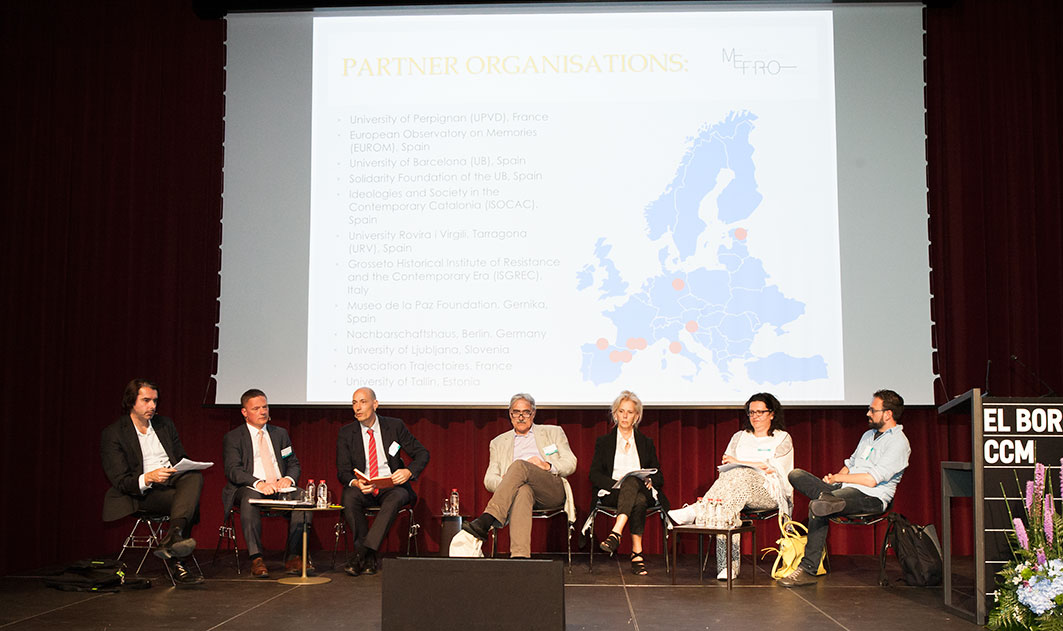
From left to right: Bruno Boyer, Rafal Rogulski, Nicolas Marty, Marcello Flores, Ophelia Leon, Alma Masic and Kostis Karpozilos - © Teresa Estrada / European Commission
Bruno Boyer presented the Memorial de la Shoah in Paris, “dedicated to the remembrance of the Holocaust and the study of other genocides”. Advocating for a European “inclusive memory”, the Holocaust Memorial establishes the Jewish Holocaust as the “common basis” or the “starting point” from which to approach other European mass atrocities, thus creating a transnational and comparative network in which “every mass atrocity is unique”, remarked Boyer.
Rafal Rogulski introduced the European Network Remembrance and Solidarity (ENRS), created by the Ministers of Culture of Poland, Germany, Hungary, and Slovakia. According to Rogulski, these countries “acknowledged the need for dialogue on the twentieth century history and established a European network for the research and dissemination of contemporary European history”. ENRS leads projects such as European Remembrance, focused on stimulating and intensifying international cooperation among institutions and organizations operating in the field of research on the twentieth century European history.
Nicolas Marty presented the project Mémoires Européenes de Frontières (Memories of European Borders - MEFRO). Led by the Université de Perpignan Via Domitia and the European Observatory on Memories (EUROM), the MEFRO network unites another seven organizations and focuses on the promotion of social research and analysis on remembrance and heritage in the specific context of European borders. Overall, it aims to transfer knowledge “in order to promote social awareness on the uses of the past”. Marty underlined the fact that “networking in a European framework offers a huge possibility to avoid difficulties”.
Marcello Flores (Istituto Nazionale per la storia del Movimento di Liberazione in Italia - INSMLI) presented the discussion currently taking place in the INSMLI network regarding the forthcoming construction of a museum-study center dedicated to Italian Fascism in the former Casa del Fascio in Predappio, Mussolini’s hometown. “It is a fact that the memory of victims is an essential and indispensable point of every historical reconstruction; we must emphasize that critical modern consciousness must be based on the complexity of history and its multiple contradictory aspects”, reflected Flores.
Ophelia Leon presented the International Committee of Memorial Museums in Remembrance of the Victims of Public Crimes (ICMEMO). ICMEMO is part of the largest network of museums worldwide, ICOM, created by the UNESCO in 1946. Above all, Leon explained that its primary goal is “promoting peace through cultural dialogue, cooperation and knowledge”.
Alma Masic presented Memory Lab, a network that works to connect people and organizations from Western Europe and the Balkans through “mutual learning, dialogue, exchange and constructive critical assessment of remembrance and history”. On the whole, Memory Lab aims at contributing to the “integration of post-Yugoslav space into a shared European civil society and memory space”.
Kostis Karpozilos introduced the Contemporary Social History Archives of Greece (ASKI), considered the leading archival institution for the history of political and social movements in the country. The main goal of ASKI is to encourage and influence public debate on memory as well as on present-day issues. According to Karpozilos, the main problem when working with memory is that it may “limit our political imagination”. To Karpozilos, we should acknowledge “this idea of memories operating as conservative narratives” and try to be in dialogue with it.
Final speech
Bruno Groppo, historian at Centre National de la Recherche Scientifique (CNRS)
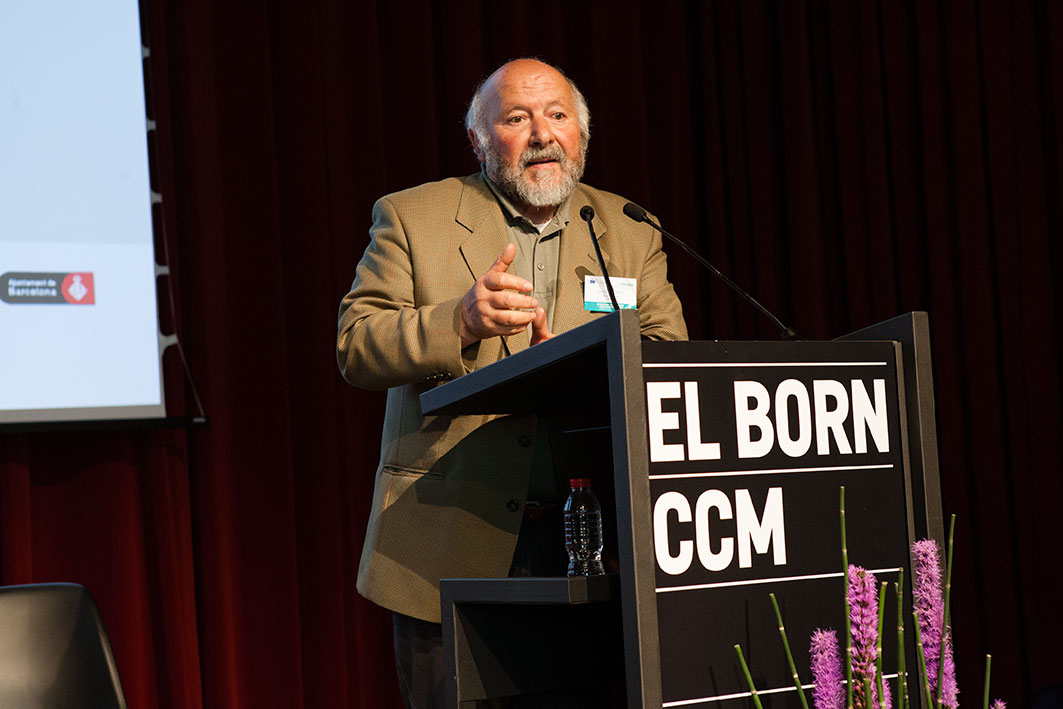
Bruno Groppo - © Teresa Estrada / European Commission
The leading expert in the history of working class movement, historian Bruno Groppo (Centre National de la Recherche Scientifique), dedicated his lecture to “Russian memories”. Specifically, Groppo spoke of Russia’s current perception regarding its Stalinist past and its sociopolitical consequences. Throughout his discussion, he described how an important part of Russia’s population is currently overcoming its “traumatic history” by selecting those elements that lately are understood as positive. “Currently, half of the Russian population has a positive image of Stalin as a military leader and responsible for the modernization of the country." According to Groppo, the reconstruction of this memory feeds a series of tensions with the memories of the neighboring countries, especially the Baltic countries and Poland. At the heart of these conflicts stands the memorialization of Russian resistance to the German invasion and the victory of the Red Army over Nazism, "the only positive episode" that emerges from the reconstruction of Russian history after the end of socialist regimes.
Closing
At the end of the conference on June 1, the representatives of the two strands of the Europe for Citizens programme gathered again, this time at El Born Centre of Culture and Memory, for the closing session.
The farewell words were shared on an informal stage of the museum and included speeches by Carme Panchón (University of Barcelona), Marc Richir (DG Home Affairs of the European Commission), Jordi Guixé (EUROM), and Gala Pin (Councilor of Participation of Barcelona). They all thanked both the organization and the audience for their active participation. Gala Pin remarked the success of the conference regarding the quality of the debates. She also stressed the importance of recovering democratic memories for the construction "of a new Europe for everyone."
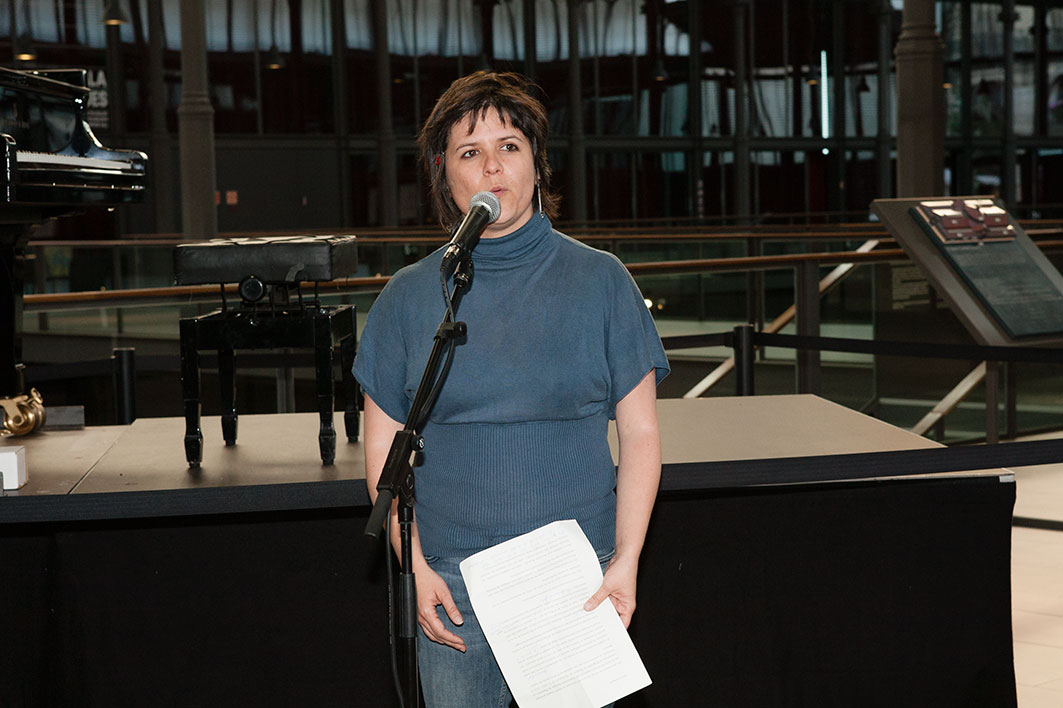
Gala Pin - © Teresa Estrada / European Commission
